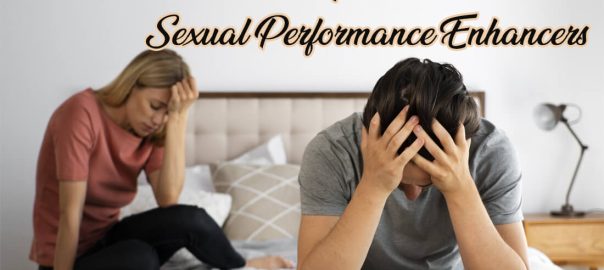
Image by drobotdean on Freepik
ED, commonly known as impotence, is a prevalent medical condition often misunderstood. It impacts men’s capacity to attain and sustain erections suitable for sexual activity. While it is a general issue, it can be a source of embarrassment and frustration for those who experience it. To better understand the best for erectile dysfunction, it’s important to delve into its causes, potential symptoms & the best available options for treating this condition.
The Mechanics of an Erection:
Before delving into the complexities of erectile dysfunction, it’s crucial to understand the physiological process that leads to an erection. When a man experiences sexual arousal, the brain communicates with the nerves in the penis through signals. These signals trigger the release of chemicals that relax the muscles in the penile arteries and corpus cavernosum—a sponge-like tissue inside the penis. As the arteries relax, they widen, allowing more blood to flow into the corpus cavernosum. The penis swells and becomes firm as blood flow intensifies, resulting in an erection.
Causes of Erectile Dysfunction:
Erectile dysfunction (ED) is a complex condition influenced by various factors, from physical to psychological and lifestyle-related. Understanding these origins is critical for designing effective strategies to prevent and treat the issue. Let’s delve deeper into the primary reasons:
Physical Factors:
- Cardiovascular Diseases: Conditions like hypertension, atherosclerosis (hardening of arteries), and diabetes can damage blood vessels and reduce blood flow to the penis. Achieving and maintaining an erection depends on proper blood circulation, so any disruptions in this process can lead to ED.
- Neurological Disorders: Neurological ailments such as multiple sclerosis, Parkinson’s disease, and spinal cord injuries can hinder the nerve signals vital for triggering the necessary physiological processes leading to an erection.
- Hormonal Imbalances: Testosterone is a key hormone responsible for male sexual function. Low testosterone levels can reduce libido and difficulties in achieving and sustaining an erection.
- Obesity: Excessive body weight can play a role in developing diverse health issues, including type 2 diabetes and cardiovascular disorders. These conditions, in turn, are risk factors associated with erectile dysfunction (ED). Additionally, obesity can lead to hormonal imbalances that affect sexual function.
Psychological Factors:
- Stress and Anxiety: When a person experiences increased pressure and anxiety, their body may release hormones like cortisol. These hormones can prompt the narrowing of blood vessels and the prevention of smooth muscle relaxation in the penis, thus complicating the process of achieving an erection.
- Depression: Depression can impact sexual desire and arousal by affecting the brain’s chemical balance. Reduced interest in activities, including sexual activity, is a common symptom of depression.
- Performance Anxiety: Worrying about sexual performance or fearing the inability to satisfy a partner can create a self-perpetuating cycle of anxiety that interferes with the body’s ability to respond sexually.
Lifestyle Factors:
- Smoking: Tobacco damages blood vessels and reduces blood flow throughout the body, including the penis. Nicotine also constricts blood vessels, further limiting blood circulation and contributing to ED.
- Alcohol Consumption: Excessive alcohol intake depresses the central nervous system, reducing sexual desire and impairing the body’s ability to respond to sexual stimuli.
- Sedentary Lifestyle: Lack of regular physical activity can lead to weight gain, cardiovascular problems, and reduced blood circulation, all linked to ED.
Symptoms of Erectile Dysfunction:
The symptoms of ED can vary in severity and may have different impacts on individuals. Recognizing these symptoms is essential for seeking appropriate medical attention with the best erectile dysfunction pills. Here’s a detailed overview of the symptoms:
Inability to Achieve an Erection:
- Men with ED often find it challenging to achieve an erection, even with sexual stimulation and desire.
- The inability to achieve an erection can lead to frustration, anxiety, and can also reduced self-esteem.
Inability to Maintain an Erection:
- Some men might be able to achieve an initial erection but struggle to keep it firm enough for satisfactory sexual intercourse.
- This symptom can make sexual activity difficult or impossible, causing strain on relationships.
Reduced Sexual Desire:
- A decrease in libido or sexual interest can be a symptom of ED, making it challenging to become aroused even in the presence of a partner.
- As a result, there’s a potential for a decrease in overall sexual satisfaction and intimacy levels within relationships.
Ejaculation and Orgasm Issues:
- ED can sometimes lead to difficulties with ejaculation, including delayed ejaculation or an inability to ejaculate.
- Achieving orgasm may also become more difficult for individuals with ED.
Best Options for Treating Erectile Dysfunction:
Lifestyle Changes: While addressing underlying lifestyle factors can significantly improve erectile function can overall contribute to better vascular health and hormone balance
Regular Exercise: Regular physical activity can improve cardiovascular health, blood circulation, and hormone balance, improving erectile function.
Weight Management: If you’re have gain weight, losing excess weight can significantly improve ED symptoms, as obesity is often associated with hormonal imbalances and poor blood circulation.
Quit Smoking: By quitting smoking, individuals can experience improved blood vessel health and increased blood flow to the penis.
Psychological Support: If psychological factors are contributing to your ED, seeking therapy or counselling can help address stress, anxiety, depression, and performance-related concerns that may be impacting your sexual function.
Healthy Sexual Communication: Openly communicate with your partner about your ED. Emotional support and understanding can alleviate anxiety and foster a comfortable and positive atmosphere for sexual encounters.
Stress Management: Enhancing erectile dysfunction requires actively participating in stress-relieving activities like yoga, meditation, deep breathing exercises, and mindfulness. These practices can alleviate stress and anxiety, which may negatively impact ED.
Educate Yourself: Gaining knowledge about your body, the factors behind erectile dysfunction (ED), and the treatment choices empowers you to make well-informed decisions regarding your sexual well-being.
Be Patient and Persistent: Treating ED might take time and experimentation to find the most effective solution. It’s also important to stay committed to positive changes despite setbacks and not let them discourage you.
Conclusion:
Erectile dysfunction is a complex condition that numerous physical, psychological, and lifestyle factors can influence. Understanding these causes and symptoms is the first step in effectively managing and treating them with the top erectile dysfunction pills. By addressing underlying health conditions, adopting a healthier lifestyle, seeking psychological support, and considering appropriate medications, men can regain their sexual confidence and overall quality of life. It’s important to remember that seeking help for erectile dysfunction is a proactive and positive step towards improving one’s well-being and enjoying fulfilling relationships. Suppose you or someone you know is experiencing symptoms of ED. For that case, communicate openly with your partner, showing patience and persistence to find the right path for individual needs.










